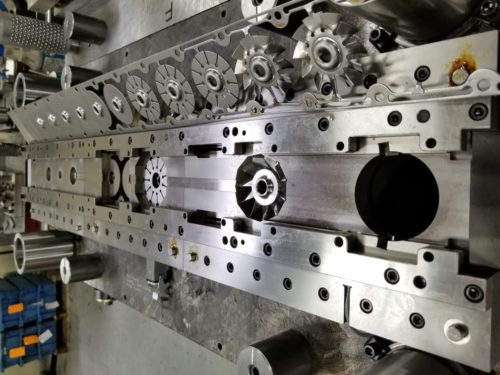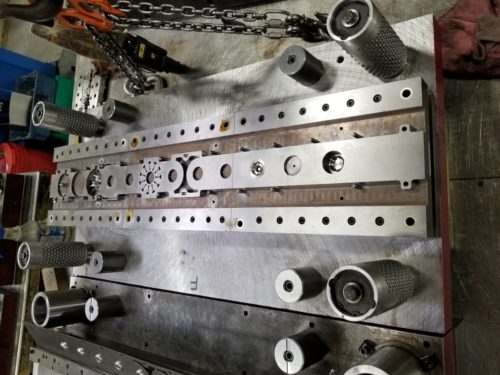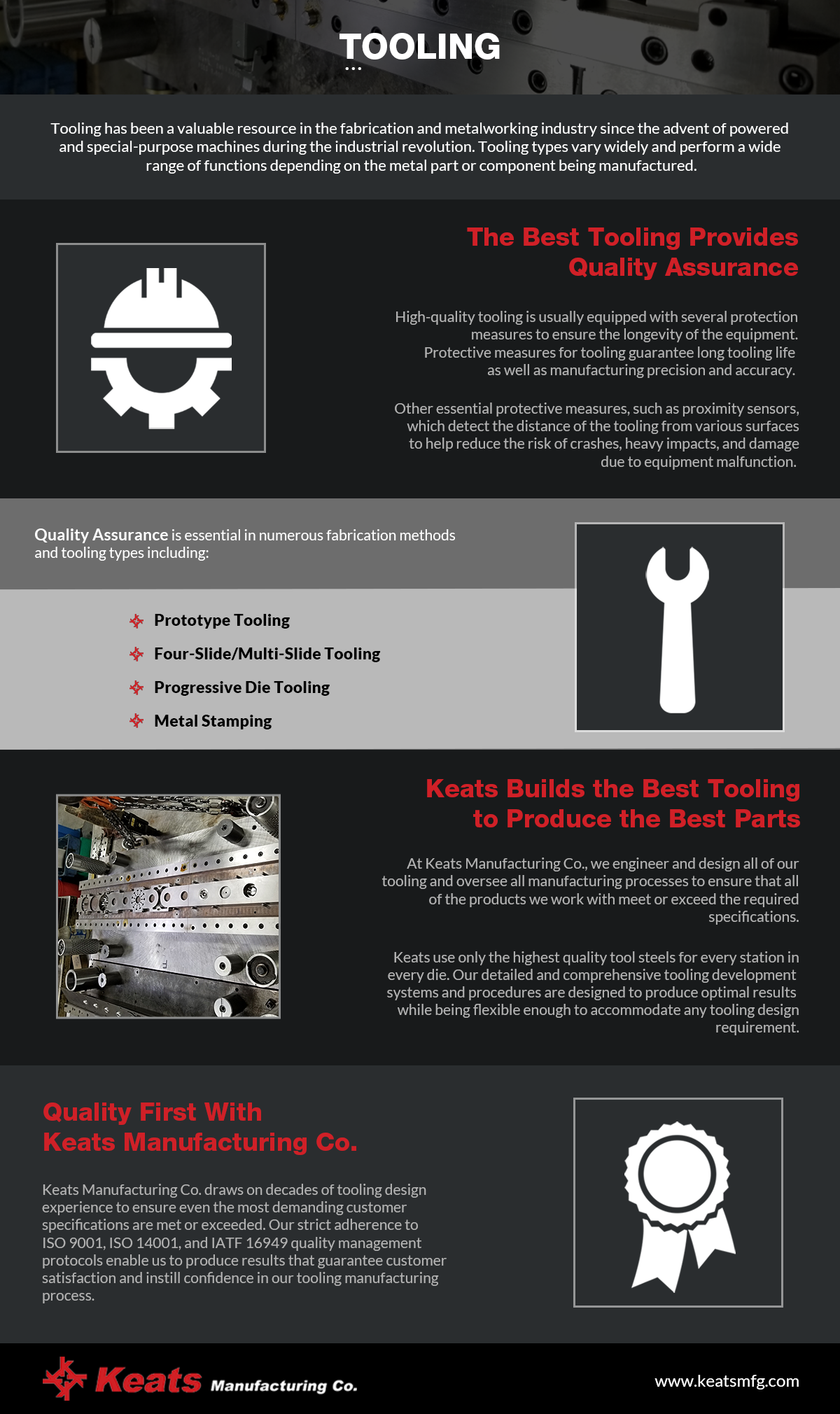Tooling has been a valuable resource in the fabrication and metalworking industry since the advent of powered and special-purpose machines during the industrial revolution. Tooling is a general term used to refer to items that cut, shape, and form metals or other materials. Tooling types vary widely and perform a wide range of functions depending on the metal part or component being manufactured.
High-quality tooling is crucial to the success of the fabrication process. Despite the initial investment, proper tooling facilitates the manufacture of durable goods, making an it an essential cost. In addition to superior product quality, high-quality tooling allows manufacturers to significantly increase production quantities with enhanced precision and repeatable accuracy—and the larger the production run, the more the tooling cost is mitigated. Mass production also facilitates the bulk purchase of materials, resulting in substantially lower material and labor costs.
The Best Tooling Provides Quality Assurance

High-quality tooling is usually equipped with several protection measures to ensure the longevity of the equipment. Load tonnage monitors help protect the tooling and dies from excessive impact forces, overloading, and other associated damage. They can also simplify tooling setup since planning for a known tonnage results in fewer equipment adjustments. Load tonnage monitors allow manufacturers to produce quality parts with the least amount of tonnage, thus reducing wear and tear on the tooling equipment.
Other essential protective measures, such as proximity sensors, which detect the distance of the tooling from various surfaces to help reduce the risk of crashes, heavy impacts, and damage due to equipment malfunction.
Protective measures for tooling guarantee long tooling life as well as manufacturing precision and accuracy. Quality assurance is essential in numerous fabrication methods and tooling types including:
- Prototype tooling
- Four-slide/multi-slide tooling
- Progressive die tooling
- Metal stamping
Keats Builds the Best Tooling to Produce the Best Parts
At Keats Manufacturing Co., we engineer and design all of our tooling and oversee all manufacturing processes to ensure that all of the products we work with meet or exceed the required specifications. Our in-house engineering & tool-build teams work in unison and utilize the latest state-of-the-art equipment and software to manufacture tooling of unparalleled precision and quality.
Every cutting, bending & forming component inside Keats tooling is inserted for quick changeovers and ease of maintenance. We use only the highest quality tool steels for every station in every die. Keats also standardizes all tooling with SMED (Single Minute Exchange of Dies) in mind to ensure that setup times are short & tooling clamps quickly to its designated production machine.
Our detailed and comprehensive tooling development systems and procedures are designed to produce optimal results while being flexible enough to accommodate any tooling design requirement. The design process, from concept to completion, may consist of as many as 40 steps depending on the tooling application. This thorough process ensures that we create efficient tooling in advance of production, mitigating any cost risk associated with tooling redesign during the production run.
Quality First With Keats Manufacturing Co.

Keats Manufacturing Co. draws on decades of tooling design experience to ensure even the most demanding customer specifications are met or exceeded. Our strict adherence to ISO 9001, ISO 14001, and IATF 16949 quality management protocols enable us to produce results that guarantee customer satisfaction and instill confidence in our tooling manufacturing process.
We are so confident in our high-quality craftsmanship that we do not hesitate to offer a lifetime guarantee on all our in-house tooling products. If you would like to learn more about what separates Keats Manufacturing Co. from the competition, download our free company brochure today.


